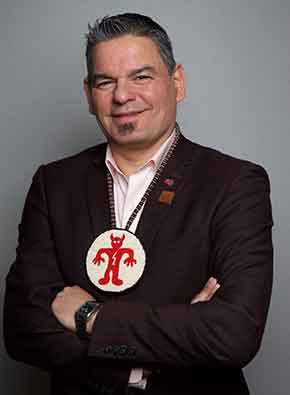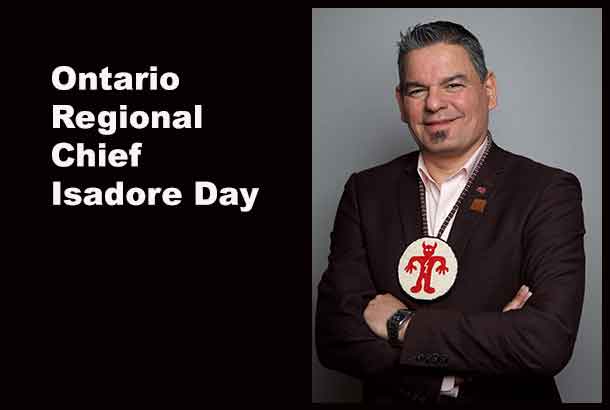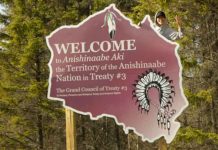
THUNDER BAY – In yesterday’s address at the Grand Council Treaty 3 Spring Assembly in Mitaanjigamiing First Nation, Regional Chief Isadore Day pledged that Chiefs of Ontario will continue to strengthen collaborations and support the unique needs of Treaty 3 communities.
“I stand with the Treaty 3 Chiefs in addressing all of their urgent priorities — in such areas of mental health; education; missing and murdered women and girls; ending Boil Water Advisories; and compensation for residential school survivors. As Regional Chief, I will be impressing upon both the provincial and federal governments that the funding already set aside must flow immediately. To be blunt, the current colonial system and bureaucratic red tape is perpetuating poverty and killing our children,” said Chief Day.
“Earlier this month, during our Special Chiefs Assembly and Lobby Day in Ottawa, the federal Ontario Liberal Caucus expressed an interest to hold a lengthy meeting with our leadership,” added Regional Chief Day. “The federal government has committed over $12 billion in new spending for First Nations over the past two budgets. We now need the political will and bureaucratic action to get that funding to those communities who are in dire need”.
Concerns Over Delays in MMIWG Inquiry
“Mitaanjigamiing First Nation Chief Janice Henderson is a strong advocate for the missing and murdered women and girls’ crisis. Yesterday, she gifted me with a small blanket representing our little ones and the need to keep them safe. Last summer, her community hosted a gathering of families seeking justice and answers into their missing and murdered loved ones. Today, we share her concerns about the ongoing delays into the federal MMIWG Inquiry. This is causing unwanted pain and frustration for all families.”
“Now is the time for Ontario and Canada to follow through on their mandates and Reconciliation commitments,” concluded Regional Chief Day. “We need to break the chains of the Indian Act by building our own institutions and authorities. Treaty 3 Chiefs have been prioritizing their education jurisdiction and strong claims to an Anishinaabe education system in Treaty #3. I support their efforts to promote their children and youth’s well being. We need to save and protect the lives of our children.”







